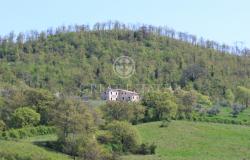 Archaeologists in Tuscany have unearthed an ancient Etruscan tomb, which has survived intact for two thousand years.
Archaeologists in Tuscany have unearthed an ancient Etruscan tomb, which has survived intact for two thousand years.
Discussing the discovery near the western town of Civitella Paganico, not far from Grosseto, team leader Andrea Marcocci said the site was in outstanding condition.
"It is rare to find a tomb so intact and well preserved," said the archaeologist.
The burial ground has been dated to between the 3rd and 1st centuries BC. An inscription confirms the site is Etruscan, and the remains of at least 16 people have been found in cinerary urns.
Excavations have so far uncovered a 'dromos', or access corridor to the tomb, which is 1.2 meters wide by 3.5 metres long.
The burial chamber itself is 2 meters by 1.79 metres and in addition to the ceramic cinerary urns, contains amphorae, bowls, phials and three bronze mirrors.
"In total, we've found about 30 objects so far, which is strange, as there are usually only five to six items at most in a tomb of this size," said Marcocci.
He said this was probably due to the fact that "a number of people were buried here at different times".
The digs are being carried out by a group of experts calling itself Odysseus, overseen by the Tuscan Archaeological Superintendent's Department.
Since starting work at the end of July, the site has attracted growing attention.
VOLUNTEERS LENDING ARCHAEOLOGISTS A HAND IN EXCAVATING SITE.
The original nine-member group, which teamed up in mid-July with the specific purpose of excavating the site, has been joined by a number of amateur archaeologists keen to lend a hand.
"There is now a line of volunteers waiting each morning to help us dig," said Marcocci.
However, the group is concerned that the ancient treasure trove may also attract the wrong kind of interest.
"Until now, the tombs were practically invisible," explained Marcocci. "Now we are concerned for the safety of the finds, and have alerted the authorities".
Since receiving the warning, the local police force has started carrying out regular night patrols to protect the site from tomb-robbers and curious members of the public.
Marcocci estimates that the site will be fully uncovered by the end of the week, after which work will begin on a second, neighbouring tomb.
The Etruscans are believed to have formed the first advanced civilisation in Italy, based in an area called Etruria, corresponding largely to present-day Tuscany and northern Lazio.
At the height of their power at around 500 BC - when Rome itself was subjugated - they spread to the foothills of the Alps and southward close to Naples.
Modern knowledge of their civilisation is based largely on archaeological finds, since much of their language has yet to be deciphered.













